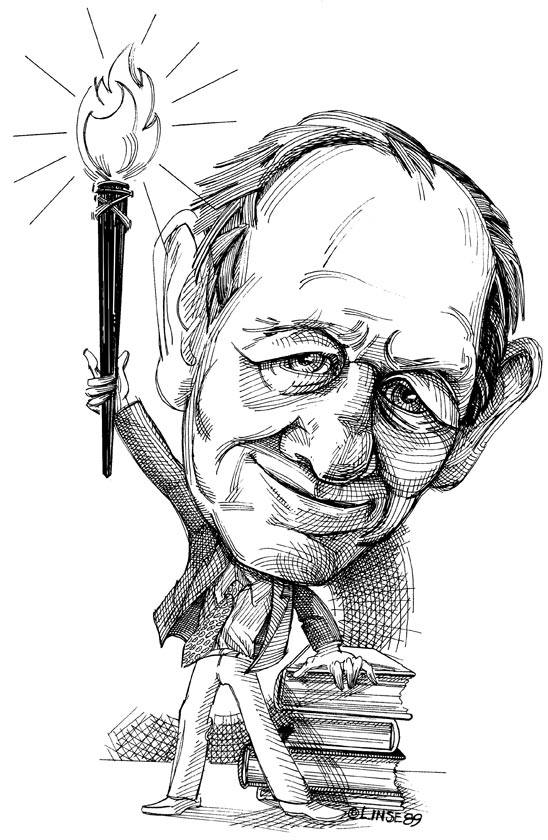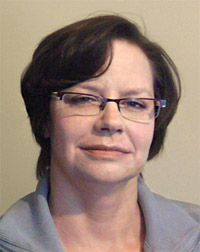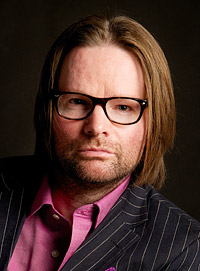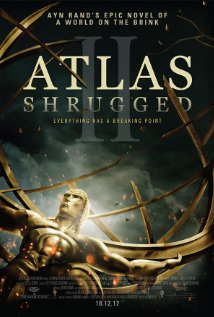In this week’s eSkeptic:
About this week’s eSkeptic
In this week’s eSkeptic, Michael Shermer remembers Paul Kurtz, who died October 20, 2012 at the age of 86. Kurtz was one of the founders of the modern skeptical movement, and he embodied the principle of skepticism as thoughtful inquiry.

Paul Kurtz & the Virtue of Skepticism
How a Thoughtful, Inquiring, Watchman
Provided a Mark to Aim at
by Michael Shermer
Skepticism dates back to the ancient Greeks, well captured in Socrates’ famous quip that all he knows is that he knows nothing. Skepticism as nihilism, however, gets us nowhere and, thankfully, almost no one embraces it. The word “skeptic,” in fact, comes from the Greek skeptikos, for “thoughtful”—far from modern misconceptions of the word as meaning “cynical” or “nihilistic.” According to the Oxford English Dictionary, “skeptical” has also been used to mean “inquiring,” “reflective,” and, with variations in the ancient Greek, “watchman” or “mark to aim at.” What a glorious meaning for what we do! We are thoughtful, inquiring, and reflective, and in a way we are the watchmen who guard against bad ideas, consumer advocates of good thinking who, through the guidelines of science, establish a mark at which to aim. Paul Kurtz, who died this week at the age of 86, was one of the founders of the modern skeptical movement, and he embodied the principle of skepticism as thoughtful inquiry. He truly was a watchman that provided a mark at which we skeptics may all aim.
Since the time of the Greeks, skepticism (in its various carnations) has evolved along with other epistemologies and their accompanying social activists. The Enlightenment, on one level, was a century-long skeptical movement, for there were no beliefs or institutions that did not come under the critical scrutiny of such thinkers as Voltaire, Diderot, Rousseau, Locke, Jefferson, and many others. Immanuel Kant in Germany and David Hume in Scotland were skeptics’ skeptics in an age of skepticism, and their influence continues unabated to this day (at least in academic philosophy and skepticism). Closer to our time, Charles Darwin and Thomas Huxley were skeptics par excellence, not only for the revolution they launched and carried on (respectively) against the dogma of creationism, but also for their stand against the burgeoning spiritualism movement that was sweeping across America, England, and the continent. Although Darwin was quiet about his spiritual skepticism and worked behind the scenes, Huxley railed publicly against the movement, bemoaning in one of the great one-liners in the history of skepticism: “Better live a crossing-sweeper than die and be made to talk twaddle by a ‘medium’ hired at a guinea a séance.” In the twentieth century Bertrand Russell and Harry Houdini stand out as representatives of skeptical thinkers and doers (respectively) of the first half, and skepticism in the second half of the century was marked by Martin Gardner’s Fads and Fallacies in the Name of Science, launching what we think of today as “the skeptics movement,” which Kurtz so courageously organized and led.
There has been some debate (and much quibbling) about who gets what amount of credit for the founding of the modern skeptical movement through the organization Committee for the Scientific Investigation of Claims of the Paranormal (CSICOP) and its journal Skeptical Inquirer (much of this history has been outlined in the pages of my own magazine, Skeptic, in interviews with the leading lights of the skeptical movement). This is not the place to present a definitive history of the movement, but from what I have gleaned from first- and second-hand sources is that science writer Martin Gardner, magician James Randi, psychologist Ray Hyman, and philosopher Paul Kurtz played primary roles in the foundation and planning of the organization and the subsequent movement.
There is little to no chance that we can convince True Believers of the errors of their thinking. Our purpose is to reach that vast middle ground between hard-core skeptics and dogmatic believers—people like me who thought that there might be something to these claims but had simply never heard a good counter explanation.
Regardless of who might be considered the “father” of the modern skeptical movement, everyone I have spoken to (including the other founders) agrees that it was Paul Kurtz more than anyone else who actually made it happen. All successful social movements have someone who has the organizational skills and social intelligence to get things done. Paul Kurtz is that man. When he founded the organization that launched the modern skeptical movement, I was a graduate student in experimental psychology. About this time (the mid 1970s) Uri Geller entered my radar screen. I recall Psychology Today and other popular magazines published glowing stories about him, and reports were afloat that experimental psychologists had tested the Israeli psychic and determined that he was genuine. My advisor—a strictly reductionistic Skinnerian behavioral psychologist named Doug Navarick—didn’t believe a word of it, but I figured there might be something to it, especially in light of all the other interesting research being conducted on altered states of consciousness, hypnosis, dreams, sensory deprivation, dolphin communication, and the like. I took a course in anthropology from Marlene Dobkin de Rios, whose research was on shamans of South America and their use of mind-altering plants. It all seemed entirely plausible to me and, being personally interested in the subject (the Ouija board consistently blew my mind), I figured that this was rapidly becoming a legitimate subfield of psychological research. After all, Thelma Moss had a research laboratory devoted to studying the paranormal, and it was at UCLA no less, one of the most highly regarded psychology programs in the country.
With the support and encouragement of Kurtz, Martin Gardner, Ray Hyman, and especially James “the Amazing” Randi entered the public sphere through popular and technical publications debunking such nonsense, and Randi went on television to reveal how the psychics actually do their tricks. It was, in fact, on Johnny Carson’s Tonight Show that Randi demonstrated how to levitate tables, bend spoons, and perform psychic surgeries. Randi didn’t convince me to become a full-fledged skeptic overnight, but it got me thinking that if some of these psychics were fakes, perhaps they all were (and if not fakes, at least self-deceived). Herein lies an important lesson.
There is little to no chance that we can convince True Believers of the errors of their thinking. Our purpose is to reach that vast middle ground between hard-core skeptics and dogmatic believers—people like me who thought that there might be something to these claims but had simply never heard a good counter explanation. There are many reasons why people believe weird things, but certainly one of the most pervasive is simply that most people have never heard a good explanation for the weird things they hear and read about. Short of a good explanation, they accept the bad explanation that is typically proffered. This alone justifies all the hard work performed by skeptics toward the cause of science and critical thinking. It does make a difference.
For 20 years now I have been at the head of the Skeptics Society and Skeptic magazine, and as such as much as I admire Randi, Gardner, and the other public faces of skepticism, I have come to respect more than ever before what Paul Kurtz has done for our movement. He may not be as prolific and famous a writer as Martin Gardner, or as public and visible an activist as James Randi, but in terms of the day-to-day grind of keeping a movement afloat through the constant battering and assaults that come from variegated sources, there are few that can be compared with Paul Kurtz. So I close this brief remembrance with several excerpts from what I still consider to be his finest work, The Transcendental Temptation, that should be mandatory reading for all graduates of a Skepticism 101 course.
The temptation, says Kurtz, “lurks deep within the human breast. It is ever-present, tempting humans by the lure of transcendental realities, subverting the power of their critical intelligence, enabling them to accept unproven and unfounded myth systems.” Specifically, Kurtz argues that myths, religions, and claims of the paranormal are lures tempting us beyond rational, critical, and scientific thinking, for the very reason that they touch something in us that is sacred and important—life and immortality: “This impulse is so strong that it has inspired the great religions and paranormal movements of the past and the present and goaded otherwise sensible men and women to swallow patently false myths and to repeat them constantly as articles of faith.” What drives this temptation? The answer Kurtz provides is both insightful and elegant:
Let us reflect on the human situation: all of our plans will fail in the long run, if not in the short. The homes we have built and lovingly furnished, the loves we have enjoyed, the careers we have dedicated ourselves to will all disappear in time. The monuments we have erected to memorialize our aspirations and achievements, if we are fortunate, may last a few hundred years, perhaps a millennium or two or three—like the stark and splendid ruins of Rome and Greece, Egypt and Judea, which have been recovered and treasured by later civilizations. But all the works of human beings disappear and are forgotten in short order. In the immediate future the beautiful clothing that we adorn ourselves with, eventually even our cherished children and grandchildren, and all of our possessions will be dissipated. Many of our poems and books, our paintings and statues will be forgotten, buried on some library shelf or in a museum, read or seen by some future scholars curious about the past, and eventually eaten by worms and molds, or perhaps consumed by fire. Even the things that we prize the most, human intelligence and love, democratic values, the quest for truth, will in time be replaced by unknown values and institutions—if the human species survives, and even that is uncertain. Were we to compile a pessimist’s handbook, we could easily fill it to overflowing with notations of false hopes and lost dreams, a catalogue of human suffering and pain, of ignominious conflict, betrayal, and defeat throughout the ages.
Although Kurtz sounds like a pessimist, he’s actually a realist, occasionally even an optimist:
Were I to take an inventory of the sum of goods in human life, they would far outweigh the banalities of evil. I would outdo the pessimist by cataloguing laughter and joy, devotion and sympathy, discovery and creativity, excellence and grandeur. The mark made upon the world by every person and by the race in general would be impressive. How wonderful it has all been. The pessimist points to Caligula, Attila, Cesare Borgia, Beria, or Himmler with horror and disgust; but I would counter with Aristotle, Pericles, da Vinci, Einstein, Beethoven, Mark Twain, Margaret Sanger, and Madame Curie. The pessimist points to duplicity and cruelty in the world; I am impressed by the sympathy, honesty, and kindness that are manifested. The pessimist reminds us of ignorance and stupidity; I, of the continue growth of human knowledge and understanding. The pessimist emphasizes the failures and defeats; I, the successes and victories in all their glory.
The most important point Kurtz makes in The Transcendental Temptation comes toward the end in his discussion of the meaning and goals of skepticism. It is an admonition we should all bear in mind, a passage to be read once a year:
The skeptic is not passionately intent on converting mankind to his or her point of view and surely is not interested in imposing it on others, though he may be deeply concerned with raising the level of education and critical inquiry in society. Still, if there are any lessons to be learned from history, it is that we should be skeptical of all points of view, including those of the skeptics. No one is infallible, and no one can claim a monopoly on truth or virtue. It would be contradictory for skepticism to seek to translate itself into a new faith. One must view with caution the promises of any new secular priest who might emerge promising a brave new world—if only his path to clarity and truth is followed. Perhaps the best we can hope for is to temper the intemperate and to tame the perverse temptation that lurks within.
R.I.P. Paul Kurtz. We all owe you a great debt of gratitude for making the world a better place. You will be missed. ![]()

NEW ON SKEPTICBLOG.ORG
Why Ayn Rand Won’t Go Away
After seeing the Los Angles premiere of Atlas Shrugged, Part 2, the film that opened October 12 based on the 1957 novel by Ayn Rand (and with an entirely new cast and higher production values a vast improvement over Part 1), a question struck Michael Shermer as he was exiting the theater surrounded by Hollywood types most commonly stereotyped as liberal: Why don’t liberals admire Ayn Rand and her philosophy of objectivism, so forcefully presented in this book and film?


YEC and Beowulf: It’s verse than you think
There are those who believe the Earth is only about 6000 years old. They believe that the evidence for this is all in the Bible, but as we’ve discussed on MonsterTalk before, they still seek confirmatory evidence from other works. So it was only a matter of time before someone suggested that the epic poem Beowulf helps prove that (a) the earth is indeed very, very young and (b) that the monsters in the poem Beowulf were dinosaurs. Hard to believe? Tune in as we talk to skeptic and Humanities researcher Eve Siebert about the most surprising interpretation of this classic story you’re likely to hear.
Watch Dr. Kevin Dutton for free online,
broadcast live from Caltech!
New Admission Policy and Prices
Please note there are important policy and pricing changes for this season of lectures at Caltech. Please review these changes now.
SINCE 1992, the Skeptics Society has sponsored the Skeptics Distinguished Science Lecture Series at Caltech: a monthly lecture series at the California Institute of Technology in Pasadena, CA. Most lectures are available for purchase in audio & video formats. Watch several of our lectures for free online. Our next lecture is…

The Wisdom of Psychopaths: What Saints, Spies, and Serial Killers Can Teach Us About Success
Sunday, October 28, 2012 at 2 pm
Baxter Lecture Hall
University of Oxford research psychologist Dr. Kevin Dutton reveals that there is a scale of “madness” along which we all sit. Incorporating the latest advances in brain scanning and neuroscience, Dutton demonstrates that the brilliant neurosurgeon who lacks empathy has more in common with a Ted Bundy who kills for pleasure than we may wish to admit, and that a mugger in a dimly lit parking lot may well, in fact, have the same nerveless poise as a titan of industry. Dutton argues that there are “functional psychopaths” among us—different from their murderous counterparts—who use their detached, unflinching, and charismatic personalities to succeed in mainstream society, and that shockingly, in some fields, the more “psychopathic” people are, the more likely they are to succeed. Dutton deconstructs this often misunderstood diagnosis through bold on-the-ground reporting and original scientific research as he mingles with the criminally insane in a high-security ward, shares a drink with one of the world’s most successful con artists, and undergoes transcranial magnetic stimulation to discover firsthand exactly how it feels to see through the eyes of a psychopath.
Followed by…
- Dr. SEAN M. CARROLL
The Particle at the End of the Universe: How the Hunt for the Higgs Boson
Leads Us to the Edge of a New World
Sunday, November 18, 2012 at 2 pm
Baxter Lecture Hall










